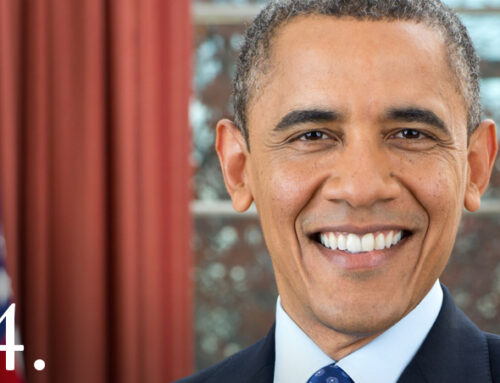James Garfield was the 20th President of the United States, serving from 1881 to 1881. He was born in Ohio in 1831 and later became a successful lawyer and politician.
Garfield was a member of the Republican Party and was known for his support of civil service reform and a limited federal government. He was also a strong advocate for the rights of small farmers and played a key role in the United States Reconstruction efforts following the Civil War.
Garfield became President after a close and contentious election in 1880 and faced many challenges during his brief presidency. One of the main challenges he faced was the issue of corruption in government, as he worked to reform the civil service and root out corrupt officials.
Garfield was also faced with significant economic challenges, including the continuing effects of the Panic of 1873 and the resulting depression. He worked to stabilize the economy and promote economic growth through a series of measures, including the introduction of the gold standard and the reduction of tariffs.
Unfortunately, Garfield’s presidency was cut short when he was assassinated in 1881 just four months into his term. Despite his limited time in office, he is remembered as a dedicated and courageous leader who served his country during a difficult and tumultuous time in its history. He is often ranked as an average president due to his efforts to address the issues facing the country during his brief tenure.
All the presidents, whose presidential tenure was cut short due to any reason can teach you some very important lessons about risk. Wiliam Henry Harrison, Abraham Lincoln, Zachary Taylor, James Garfield. Philosophically they can teach you many things. But what about financially?
There are many things that you can learn from a guy born in a log cabin, who lost his father at 2 years, who become a businessman, who was a successful military leader From the union during the civil war, who Made many appointments of many black American which shock many. But I realise that He got shot and was in the hospital for 2 months before dying.
Health insurance is very important. Reason?
Health insurance plays an important role in financial planning because it helps to protect individuals and families from the high cost of medical care. Without insurance, an unexpected illness or injury could lead to financial ruin, as medical bills can be extremely expensive.
One of the main drivers of healthcare inflation is the rising cost of medical technology. As new treatments, drugs, and equipment become available, they tend to be more expensive than older ones. Additionally, the development and introduction of new medical treatments and procedures can also increase the overall cost of healthcare. Another important factor that contributes to healthcare inflation is the aging of the population. As people live longer, they tend to use more healthcare services and require more expensive treatments.
Having health insurance can help to mitigate this risk by covering a portion or all of the cost of care. This can help to keep out-of-pocket expenses more manageable and prevent large, unexpected medical bills from overwhelming a family’s budget.
I need to accept that Dr house is one of my favorite series. I love to watch so much drama and all. But once I realize that this is one thing that is not real, but there may be many similar cases, what about them? their bill may be big.
James Garfield was President, and I am sure even at that time, that was difficult and costly for doctors to treat him and so he died in a hospital after 2 months.
The COVID pandemic teaches us many things. It teaches us how much undeveloped the healthcare sector is in many countries. How much is the real need for hospitals and what they are? But also highlight that this can be costly. It can easily burn holes in your pocket.
I know that health insurance is helpful for tax exemption but if you are buying only for that, That will be only that. But if you are taking health insurance for protection.
Choosing the right health insurance can be a complex process, but there are a few key factors to consider when making your decision:
- Coverage: Make sure the plan you choose covers the medical services and treatments that you or your family may need. This includes doctor visits, prescription drugs, and hospital stays.
- Cost: Compare the cost of different plans, including the monthly premium, deductibles, and co-pays. It’s important to find a plan that fits your budget and provides the coverage you need.
- Network: Consider whether the plan you choose has a network of doctors, hospitals and other healthcare providers that you trust and feel comfortable with.
- Flexibility: Determine whether the plan offers flexibility in terms of the choice of providers and treatments. Some plans may have more restrictive networks or require referrals from a primary care physician.
- Out-of-pocket costs: Look into the out-of-pocket maximums or the cap of your expenses that insurance will cover. This will help you to be prepared for unexpected medical expenses.
- Additional benefits: Some plans offer additional benefits such as vision, dental, and mental health coverage, which you may find valuable.
- Government aid: If you are eligible, check if you can get government aid to help with your premium costs.
It’s also important to review your insurance plan every year to make sure it still meets your needs and that you are getting the best value for your money. If you have any doubts or questions, don’t hesitate to reach out to the insurance company for clarification.
When you don’t have health insurance, you can use an emergency fund. An emergency fund is a savings account that is set aside specifically for unexpected expenses, such as a medical emergency. The use of emergency funds for health emergencies can provide financial stability and help ease the burden of unexpected medical bills.
When a health emergency occurs, it can be a stressful and overwhelming time. Having an emergency fund in place can provide peace of mind, knowing that you have the financial resources to cover the cost of medical care. This can help to prevent financial stress and allow you to focus on your recovery.
Using emergency funds for health emergencies can also help to avoid accumulating debt or having to make difficult financial choices, such as cutting back on other expenses or borrowing money.




